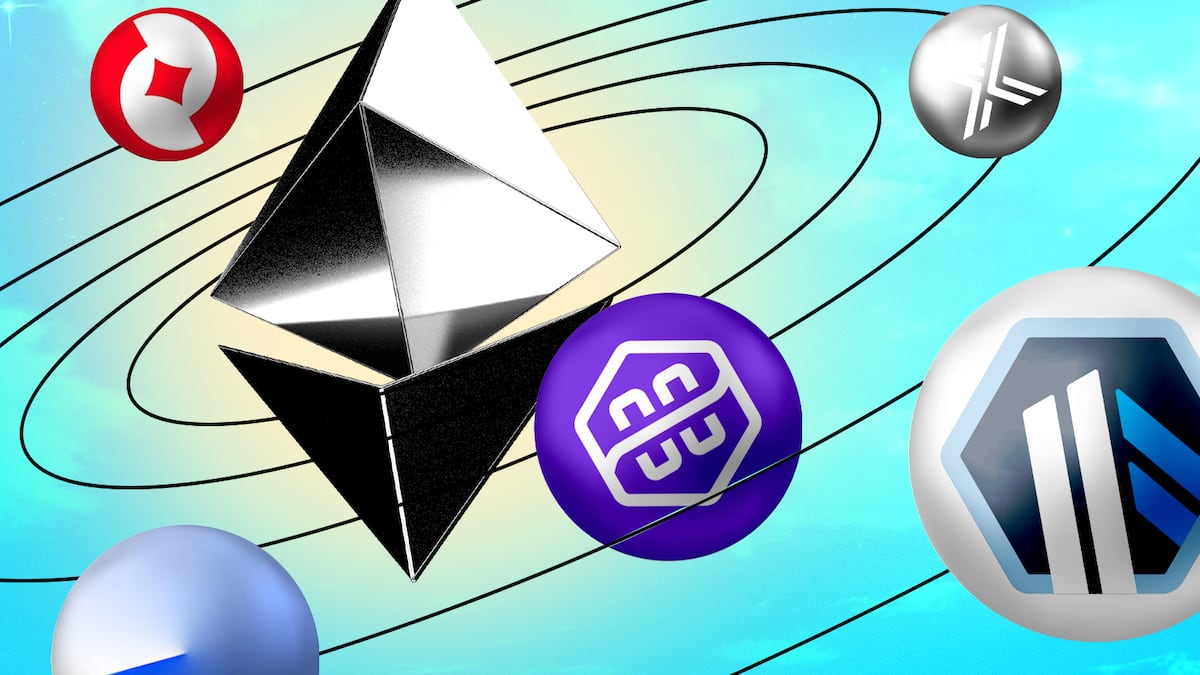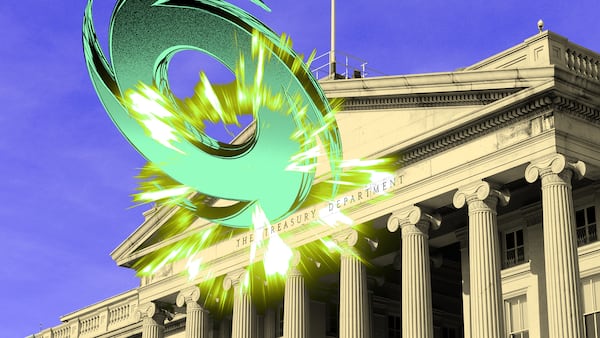- More than 9,000 crypto addresses engaged in cross-chain arbitrage worth $868 million in a 12-month span, according to a new study.
- That trading was highly concentrated, with four wallets accounting for half the recorded volume.
- The intricacies of onchain arbitrage could lead to greater censorship risk, according to the authors.
A version of this article appeared in our The Decentralised newsletter on June 24. Sign up here.
Distributed and permissionless technology will win a remarkable victory if decentralised financial applications become the default venue for trading equities, currencies, derivatives, and crypto assets.
But that victory will also threaten the distributed nature of DeFi, according to a new paper authored by researchers at crypto firm Flashbots, the University of Lisbon, and the Technical University of Munich.
That’s because arbitrage — trading to take advantage of price discrepancies across different exchanges and blockchains — can lead to a rich-get-richer cycle whereby actors in the shadowy world of MEV become powerful enough to censor transactions, whether to crush competitors or comply with government orders.
The intricacies of blockchain-based arbitrage “create a powerful incentive for vertical integration,” the researchers write. “The result is a small set of centralised gatekeepers.”
MEV, short for maximum extractable value, refers to the profit that can be gained from the process of selecting and arranging pending transactions to build the blocks that form a blockchain.
Examples include front-running transactions, back-running, and so-called sandwich attacks.
Arbitrage is important: it helps keep prices in line across different exchanges and blockchains. When an asset is priced too low on a particular exchange, a trader can buy it there and sell it on another exchange where the price is higher, pocketing the difference.
Do that enough times, and the prices on the two exchanges will converge.
Today, most arbitrage is done through centralised exchanges. But some traders conduct arbitrage entirely onchain, attempting to profit off price differences on decentralised exchanges on different blockchains.
The paper found that more than 9,000 addresses engaged in cross-chain arbitrage worth $868 million between September 2023 and August 2024.
But that trading was extremely concentrated: four addresses accounted for half of the volume they were able to measure. One address accounted for more than a third of that volume.
The paper notes that high-frequency trading firms and layer 2 blockchains that order transactions using so-called sequencers are among the players well-positioned to gain disproportionate power under the current paradigm.
“These alliances concentrate both physical infrastructure (clustered in few data-centers) and economic power, creating a feedback loop: sequencing advantages yield higher MEV, which funds still more sequencing reach,” the researchers write.
The decentralisation of blockchains is supposed to make finance un-censorable. In a world where crypto rules, for instance, a tyrannical government won’t be able to freeze dissidents’ bank accounts.
Or so the theory goes. This paper shows that centralisation and censorship are always lurking around the corner. Of course, Ethereum developers have a plan for that.
“Decentralising block building and lowering entry barriers — thereby undercutting exclusive sequencer–searcher deals — are critical countermeasures,” the researchers write.
Several such proposals are in the Ethereum roadmap or currently being studied.
Top DeFi stories of the week
This week in DeFi governance
VOTE: Aave votes to expand to Aptos blockchain.
VOTE: Arbitrum DAO votes to consolidate treasury management committees.
PROPOSAL: Optimism Collective considers upgrade setting stage for “Superchain” interoperability.
Post of the week
There’s a theory that one can learn of an imminent military operation by tracking publicly available data on activity at pizza joints near the Pentagon. Of course, crypto folks have (probably illegal) ideas on manipulating that data to turn a quick profit.
if you bought a bunch of world war 3 bets on polymarket and kalshi then ordered a bunch of pizzas around Alexandria VA and sold the pump would that be considered securities fraud
— Senior PowerPoint Engineer (@ryxcommar) June 18, 2025
Got a tip about DeFi? Reach out at aleks@dlnews.com









